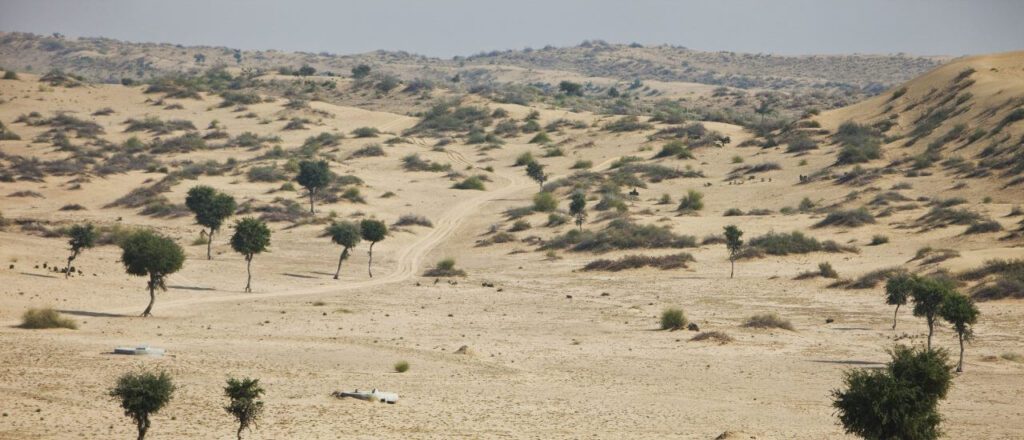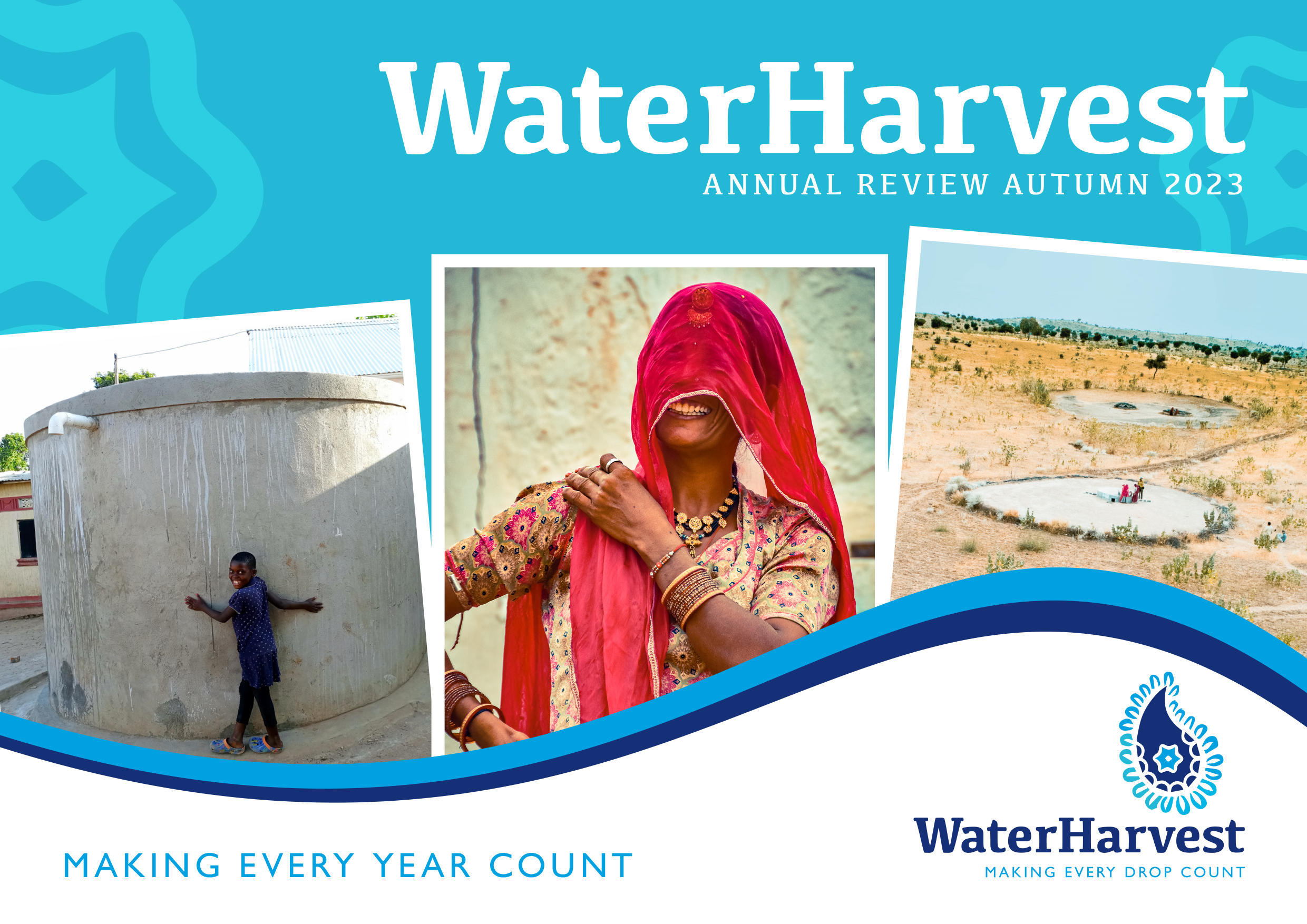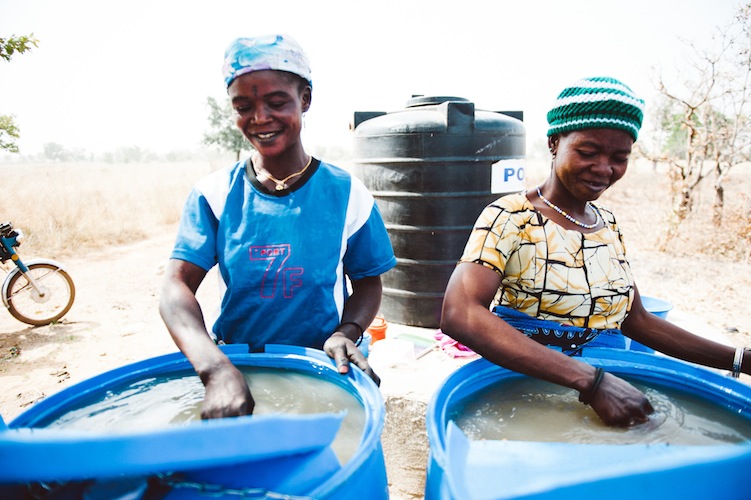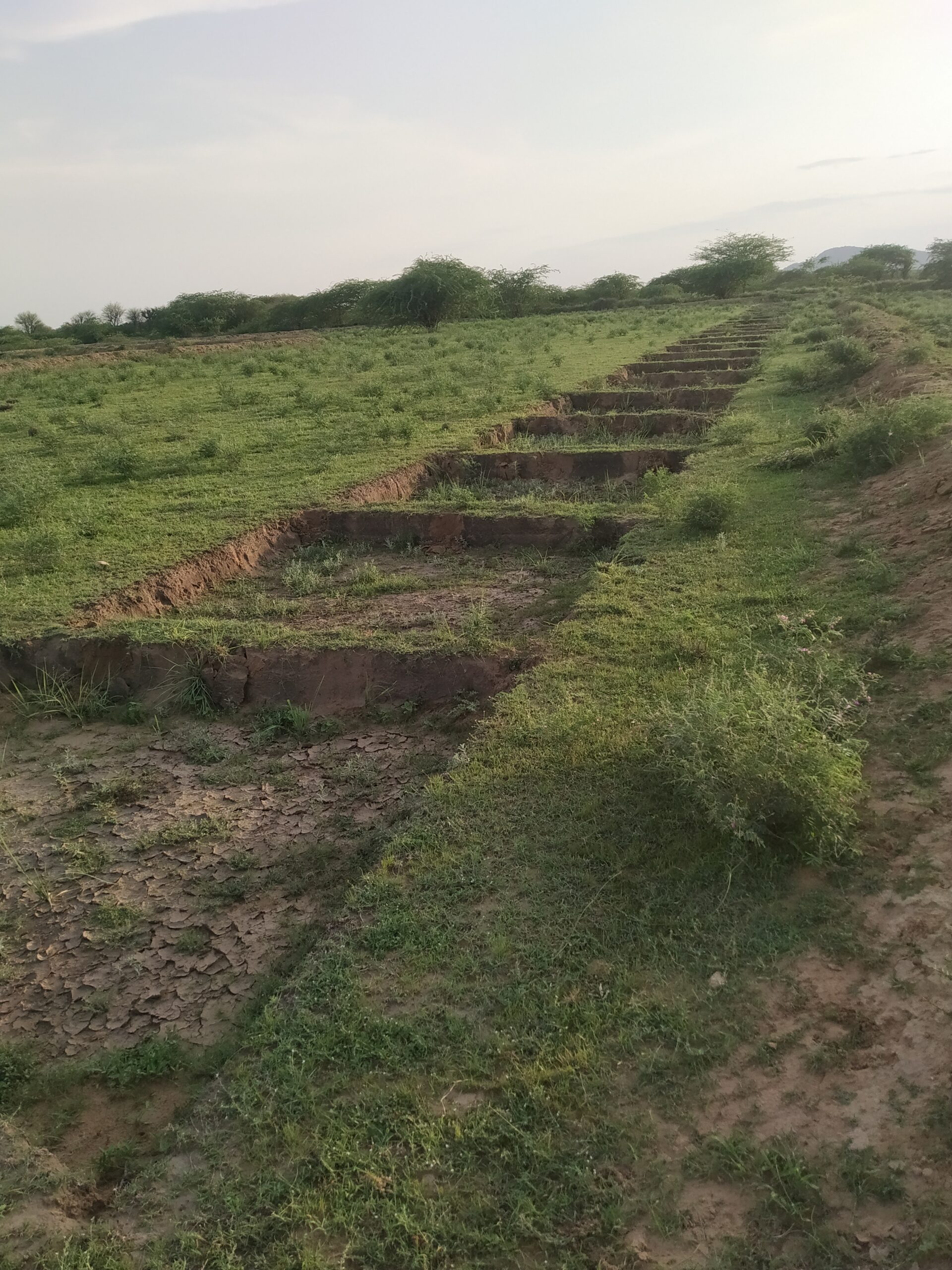November 2018
Climate change threatens serious implications for our natural resources, our infrastructure as well as our food and water security. India is recognised as one of the most vulnerable countries to climatic variability, with much of the nation’s lowest socio-economic communities directly dependent on primary natural resources for their livelihoods, including rainfall for water consumption and crop production. For these marginalised communities, the impact of climate change cannot be understated. The World Bank projects that the pressures on India’s water, air, soil and forests are likely to be the most globally intense by 2020.
Rajasthan is amongst the most climate-sensitive states in India. Already commonly drought-prone, the state is also seen to have the lowest adaptive capacity to deal with the challenges of climate change. To help these communities adapt and survive under an already-changing climate, WaterHarvest works alongside many partners, engaging in numerous projects to address agriculture and water security problems.
A key factor of climate change is the increasing variability in rainfall, making agriculture increasingly challenging due to the unpredictability of adequate soil moisture for crop growth. Additionally, changes in soil, pest and weeds brought about by climate change can further compound pressures on agriculture in Rajasthan. In addressing such issues, the innovation of novel nature-based solutions to improve water storage and soil moisture have been key to Rajasthan’s agricultural development and food security.
As one prominent example, since 2014 we have worked alongside the NGO Tarun Bharat Sangh (TBS), one of our long-term partners, to promote the installation of irrigation systems to substantially increase the water efficiency of agriculture production. For farmers, usually dependent on the increasingly erratic monsoon, this technology is a significant adaptation to Rajasthan’s increasing climatic variability. In many cases, the impact has proven to be life-changing, improving food sufficiency, income and opportunities for children (girls in particular) to engage in education. The influence this has had for these marginalised communities has not gone unnoticed, with the low-cost community-led, nature-based approaches lauded by the United Nations in the World Water Development Report 2018.
 Although many of our projects help marginalised communities adapt to the disturbances of climate change, a lot of our efforts have a mitigating effect too. Earlier in April this year, our Revive and Thrive appeal was launched, aiming to help farmers regain control of their livelihoods and enable a better future for themselves and their families. Working alongside GVNML, the introduction of a ‘Chauka’ system has helped regenerate degraded community pasture land. ‘Chauka’, is a system of trenches and bunds which harvests rainwater, increasing cultivable farmland through spillways and channels to fields and ponds. The resulting ground moisture supports year-round vegetation, providing a rich source of fodder for grazing animals. Although the appeal was designed to help farmers cope with the downward spiral of impoverishment, Revive and Thrive also contributes to the mitigation of climate change. Through the conservation and restoration of pasture land, the improved soil moisture has the net effect of storing greater carbon in the soil, acting as a reservoir of carbon removed from the atmosphere.
Although many of our projects help marginalised communities adapt to the disturbances of climate change, a lot of our efforts have a mitigating effect too. Earlier in April this year, our Revive and Thrive appeal was launched, aiming to help farmers regain control of their livelihoods and enable a better future for themselves and their families. Working alongside GVNML, the introduction of a ‘Chauka’ system has helped regenerate degraded community pasture land. ‘Chauka’, is a system of trenches and bunds which harvests rainwater, increasing cultivable farmland through spillways and channels to fields and ponds. The resulting ground moisture supports year-round vegetation, providing a rich source of fodder for grazing animals. Although the appeal was designed to help farmers cope with the downward spiral of impoverishment, Revive and Thrive also contributes to the mitigation of climate change. Through the conservation and restoration of pasture land, the improved soil moisture has the net effect of storing greater carbon in the soil, acting as a reservoir of carbon removed from the atmosphere.
While Revive and Thrive aims to restore the lives of these local communities, it also sets out to help replenish the surrounding environment. The appeal promises to help improve biodiversity by planting indigenous trees and grasses and develop protected areas for wildlife. Through the support of the appeal, we aim to plant 1,200 trees to help restore the environment so wildlife can thrive. By restoring the natural habitat, Revive and Thrive can make a huge difference, equipping local communities to achieve lasting change. The appeal has made excellent progress so far, with 25 hectares of land rejuvenated, but we must do more. Our target for the appeal is to restore 150 hectares of land, so further support would be appreciated.
Any donation towards the appeal can help rural farmers gain control back of their lives and provide another step towards replenishing the natural environment.
More information on the appeal can be found here.
For everyone throughout the world, recognising the impact of climate change is integral. We must work together, urban and rural communities alike, to protect our planet from the devastating impacts of climate change.
Please take a look at last weeks’ blog to see the damaging contribution climate change is having on the people of the Kutch district, Gujarat. We are looking to change the lives of 31 water deprived families this Christmas through the Big Give Christmas Challenge 2018.
Every donation will be match-funded from midday #GivingTuesday 27th November – Midday Tuesday 4th December. Thank you.
See WaterHarvest’s Big Give Christmas Challenge 2018 Page Here!




